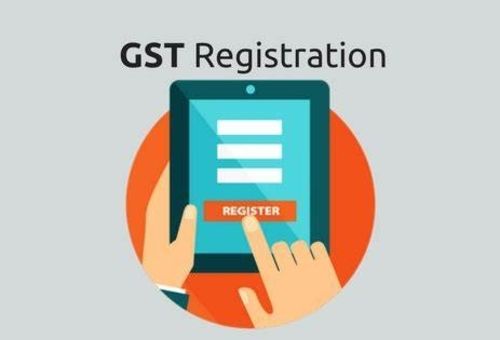Locating Trusted and Effective Best GST Registration Services in Singapore
Locating Trusted and Effective Best GST Registration Services in Singapore
Blog Article
Throughout: The Ultimate Roadmap to GST Registration for Organizations Seeking Financial Security
Navigating the intricacies of Product and Solutions Tax Obligation (GST) registration is an important action for organizations striving for economic security. From comprehending the basic principles of GST to conforming with post-registration guidelines, the procedure can seem daunting in the beginning look. Nevertheless, damaging down the roadmap into workable steps can streamline the enrollment journey for organizations wanting to improve their monetary standing. Let's check out the essential elements that comprise this supreme roadmap and discover exactly how each phase adds to laying a solid foundation for financial success.
Comprehending GST Fundamentals
Digging right into the essential principles of Product and Services Tax Obligation (GST) is essential for obtaining a thorough understanding of its ramifications on services and the economic climate. GST is a value-added tax imposed on many products and solutions for domestic consumption. It has changed multiple indirect taxes that existed in the pre-GST age, streamlining the tax structure and improving convenience of doing business in India. Under the GST system, both services and products are exhausted at a particular rate, which is established based on their classification. Businesses are called for to sign up for GST if their annual turnover exceeds the threshold restriction set by the federal government. Input Tax Obligation Credit Score (ITC) is a significant function of GST, permitting services to claim credit scores for tax obligations paid on inputs, reducing the overall tax obligation problem. Understanding the essentials of GST is essential for companies to adhere to tax regulations, handle their funds effectively, and add to the country's economic growth by taking part in a clear tax system.
Eligibility Requirements for Enrollment
As of the existing laws, the threshold limitation for GST registration is a yearly accumulation turnover of 40 lakhs for services running within a state, other than for unique group states where the restriction is 20 lakhs. Additionally, specific organizations are needed to sign up for GST regardless of their turnover, such as interstate suppliers, laid-back taxable persons, and services responsible to pay tax obligation under the reverse charge mechanism. It is important for businesses to extensively assess their turn over and purchase kinds to identify their GST enrollment commitments properly.
Papers Required for Enrollment
Having met the eligibility criteria for GST registration, companies should now guarantee they have the requisite records in position to continue with the enrollment process efficiently. The records needed for GST registration commonly include evidence of business constitution, such as partnership act, enrollment certificate, or consolidation certification for various kinds of companies. Furthermore, organizations need to offer papers establishing the principal workplace, such as a rental contract or power costs. Frying pan card of business, along with the identity and address evidence of promoters/partners/directors, are necessary for verification functions. Savings account statements, along with terminated cheques or a copy of the bank passbook, are required to verify the financial details provided during enrollment. Services have to have electronic signatures ready for the authorized signatory. Guaranteeing all these files are arranged and conveniently offered will certainly speed up the GST enrollment procedure, enabling organizations to abide by tax obligation original site laws perfectly.
Step-by-Step Registration Process
Commencing the GST enrollment process entails a collection of structured steps to make certain a compliant and smooth enrollment for businesses. The very first step is to check out the GST portal and load out the enrollment type with precise information of business entity. Following this, the applicant receives a Temporary Reference Number (TRN) which is used to return to the application procedure if it's not completed in one go.
Next, all needed papers according to the list supplied by the GST portal requirement to be posted. These papers normally include evidence of company registration, address and identification proofs of promoters, financial declarations, and service entity's PAN card.

Post-Registration Conformity Guidelines

Conclusion
To conclude, companies seeking monetary stability has to recognize the fundamentals of GST, meet eligibility standards, collect essential documents, comply with the detailed registration procedure, and adhere to post-registration standards - Best GST registration services in Singapore. By adhering to these actions, businesses can make certain conformity with tax laws and preserve financial stability over time
Furthermore, particular organizations are required to register for GST irrespective of their turnover, such as interstate providers, informal taxable individuals, and businesses liable to pay tax under the reverse charge system.Having actually fulfilled the qualification standards for GST enrollment, companies must now guarantee they have the requisite records in area to proceed with the enrollment process successfully. The files needed for GST registration typically consist of proof of organization constitution, such as collaboration act, registration certificate, or unification certification for various kinds of organizations. Furthermore, services require to supply papers developing the primary area of organization, such as a rental arrangement or electricity bill.Beginning the GST registration process entails a series of structured steps to ensure a compliant and seamless registration for organizations.
Report this page